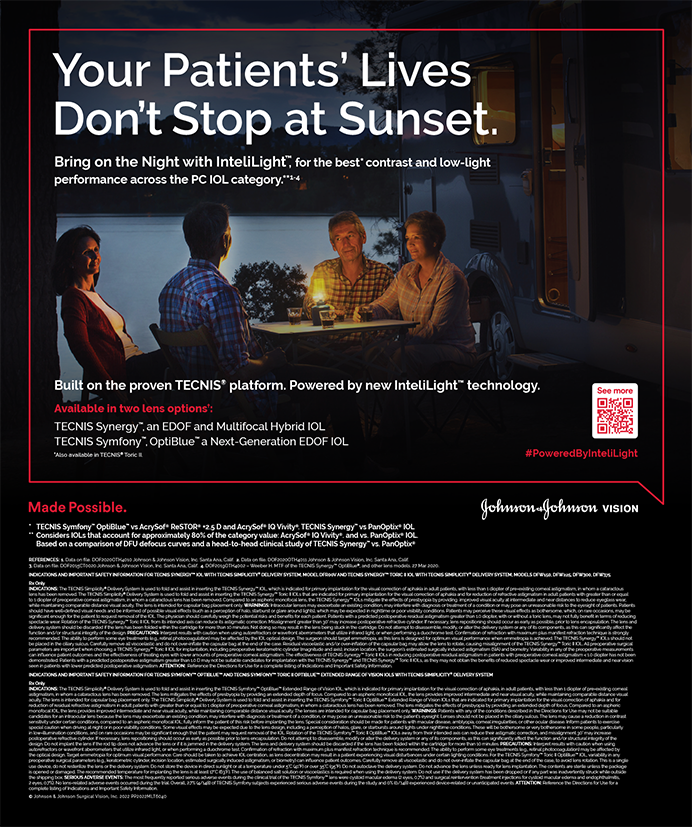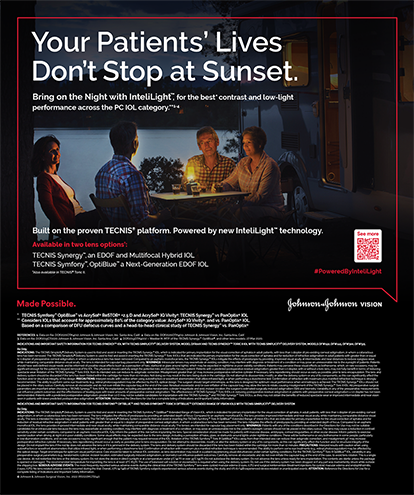Canada features a health care system that is more accurately described as socialized insurance, rather than socialized medicine. Universal coverage in Canada is paid for by tax dollars, health care delivery is private, and physicians bill the government for their services. Individual provinces and territories are responsible for their health care budgets and the administration of health plans.
Citizens may see any physician they want, and care is provided with no copayments or deductibles. Although additional services such as optometry, dentistry, and outpatient prescription drugs are not included, many people have private supplemental insurance to cover those items. According to a report on National Public Radio (NPR), however, some Canadians have difficulty paying out of pocket for these ancillary services.1
“A big advantage doctors have in Canada is that we deal with a single-payer system,” said Fareed Ali, MD, DABO, FRCSC, in an e-mail to Cataract & Refractive Surgery Today. “When we submit for payment, we are virtually guaranteed to get full payment for our services in a very timely manner. Overall the system is very streamlined, cuts down on our office overhead costs, and allows us to reliably plan our income and cash-flow projections when compared to the more complex and cumbersome multipayer systems in the United States.” Dr. Ali is a retina specialist in Mississauga, Ontario.
A nonpartisan US health research organization, The Commonwealth Fund, recently studied preventable deaths in terms of access to health care.2 The group’s survey found that the United States ranks last among 19 countries when it comes to deaths that could have been prevented by access to timely and effective health care. Canada ranked sixth.
Another advantage of the Canadian system, according to Dr. Ali, is patients’ access to specialized medical care.
“In general in Canada we have fewer specialists per capita than in the United States. This is contrasted by the fact that patients do not have to pay extra to see a specialist, and very rarely have to pay for specialized medical care—even very complex procedures,” Dr. Ali said. “As a result, there are no financial barriers to patients being referred to specialists, and once the patient sees the specialists, there are very few financial barriers to patients receiving the appropriate therapy.”
INSURANCE WITH LIMITS AND RATIONS?
“I would agree that Canada’s system is one of socialized insurance, but it’s insurance with limits and rations,” Howard V. Gimbel, MD, told CRSToday an e-mail. “In my particular practice of cataract surgery, which is not urgent from a lifesaving standpoint, the funding for cataract surgery has always been rationed, requiring many patients to wait long periods of time for this procedure. Although excellent vision is not necessary for maintaining life, it is necessary for maintaining good quality of life and often for maintaining necessary abilities for jobs.1 I have been told that there are eight surgeons in Calgary with waitlists for cataract surgery for over 1 year. This is because the number of cataracts to be performed in Calgary is rationed by the government.” Dr. Gimbel is in practice at the Gimbel Eye Center, Calgary, Alberta.
Health economics expert Professor Bob Evans with the Centre for Health Policy Research at the University of British Columbia in Vancouver, however, told NPR that the impression that Canadians endure rationed care, long waiting lists, and a government bureaucrat who gets in between them and a doctor is “absolute nonsense.” Professor Evans has been studying the US and Canadian systems since they were both founded in the mid-1960s.
“Are there cases of people who wind up not getting the care they need at appropriate times?” he asked, referring to the Canadian system. “Yes, of course there are. This is a huge system and it’s a very complicated one and things do go wrong. But as a general rule, what happens here is that when you need the care, you get it.”
A study by the Organization for Economic Cooperation and Development found that, although delays for nonemergency procedures exist, Canada’s system of universal health coverage provides care as good as in the United States at a 47% lower cost per person.3 The Organization for Economic Cooperation and Development is a Parisbased coalition of 30 industrialized nations that allows governments to compare policy, according to its Web site.
“The statistic that health care costs 47% lower in Canada than in the United States does not take into account the many elective procedures that are done by Canadians traveling to the United States to have surgery on a timely basis rather than wait in Canada,” Dr Gimbel said. “Unfortunately not everyone can afford to pay for that service and the associated costs of travel and accommodation.”
A RECESSION, THEN REFORM
Canada experienced a recession in the 1990s, and during that time, federal spending on health care there declined. This resulted in lines for procedures that were not urgent and even some that were.
After the Canadian Supreme Court investigated the situation, the government invested billions of dollars to remedy the system. Waiting times for care in the specialties identified as the most troublesome decreased, and now provinces are held accountable through reported waiting times that are available on public Web sites.
“Recent initiatives on behalf of the government, including financial incentives to hospitals, have resulted in drastic decreases in wait times for ophthalmic surgical procedures,” said George Beiko, BM, BCh, FRCSC, in an e-mail to CRSToday. “In particular, the wait for cataract surgery has decreased from over a 1-year wait to an average of 1 to 2 months.” Dr. Beiko is in private practice in St. Catharine’s, Ontario.
According to the NPR report, the amount of data available and accountability to the public in Canada is nonexistent in the United States, but that is not to say the Canadian system is perfect. The polling group Environics, Canada’s leading marketing and social survey research consultancy, found that about half of Canadians would like the option of purchasing private primary health insurance, something that is not currently allowed.
“The fact that about half of Canadians would like the option of purchasing private primary health insurance means that they are not content with the delays caused by the rationing in the system and would prefer to have the option of choosing a different service or more timely service outside the socialized insurance system,” Dr. Gimbel said. “The monopoly that the system maintains deprives people of personal choice.”
The Canadian system is confronted with many of the same problems that exist in the United States—questions over how to pay for the care of aging baby boomers, a shortage of primary care doctors, and the overuse of hospital emergency departments.
“The next challenge will be to ensure that there are sufficient human resources to deliver the services,” Dr. Beiko said. “Currently, there are about 980 full time equivalent ophthalmologists for a population of 35 million; about 60% to 70% of the ophthalmologists are over 55 years of age and likely to retire in the next 10 to 15 years; and there are only 22 residency positions across Canada in ophthalmology."3
Fareed Ali, MD, DABO, FRCSC, is a retina specialist with Ophthalmic Consultant Centres Inc., and is director of clinical research at the Canadian Centre for Advanced Eye Therapeutics Inc. in Mississauga, Ontario. Dr. Ali may be reached at (905) 212-9482; drfali@rogers.com.
George Beiko, BM, BCh, FRCSC, is assistant professor of ophthalmology at McMaster University, a lecturer at the University of Toronto, and a private practitioner in St. Catharine's, Ontario. Dr. Beiko may be reached at (905) 687-8322; george.beiko@sympatico.ca.
Howard V. Gimbel, MD, is medical director and senior surgeon at the Gimbel Eye Center, Calgary, Alberta, and he is also professor and chairman, Department of Ophthalmology, Loma Linda University, Loma Linda, California. Dr. Gimbel may be reached at (909) 558-2154 or (403) 286-3022; hvgimbel@gimbel.com.
- Varney Sarah. Does Canada’s health care system need fixing? National Public Radio. http://www.npr.org/templates/story/story.php?storyId=111721651. August 10, 2009. Accessed December 3, 2009.
- New study: U.S. ranks last among other industrialized nations on preventable deaths. The Commonwealth Fund. January 8, 2008. http://www.commonwealthfund.org/Content/News/News-Releases/2008/Jan/New-Study— US—Ranks-Last-Among-Other-Industrialized-Nations-on-Preventable-Deaths.aspx. Accessed December 11, 2009.
- OECD Health at a Glance 2009: key findings for Canada. Organization for Economic Cooperation and Development. http://www.oecd.org/documentprint/0,3455,en_33873108_33873277_44220787_1_1_1_1, 00.html. Accessed December 4, 2009.


